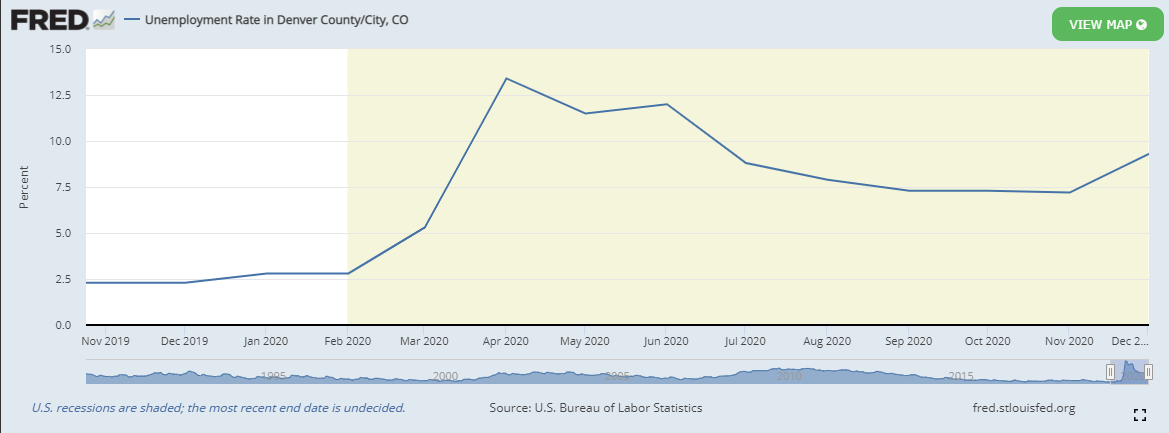Archive for category Uncategorized
Biden Kow Tows
Posted by Joshua Sharf in Uncategorized on February 14th, 2021

The Biden Administration, less than a week after taking office, has reversed a proposed Trump Administration rule that would have required colleges and universities to disclose their operating agreements with Confucius Institutes.
The Institutes are popular with US schools because the Chinese government picks up the tab and provides the teachers and materials, while the university or college need only provide the venue and the students. They give colleges a turn-key operation that teaches Chinese language, history, and culture, often where there was no such offering available before.
Of course, that also comes with strings – the Chinese get to dictate the curriculum. The teachers are also skilled at deflecting, ignoring, or marginalizing uncomfortable questions about Uyghur genocide, Hong Kong suppression, Tibetan imperialism, or designs on Taiwanese democracy.
And with so many Chinese students attending US colleges, the Institutes provide a convenient base from which to keep eyes on them. One of the selling points of letting us train the next generation of Chinese scientists and engineers is that they’ll take home their exposure to US freedoms, leading to domestic discontent among the Chinese middle class with the CCP’s repression. Spies at the CIs aim both to keep close watch on the Chinese students here, and to remind them that they usually have vulnerable family back home.
All of this led the Trump Administration both to its belated effort to require schools to disclose the terms of their arrangements, and to its designation of CIs as Chinese foreign missions.
Biden’s move comes at a time when these institutes have come under intense scrutiny both from the US government and from students themselves, leading schools to begin closing them. If Biden’s foreign policy team tries to relieve that pressure, it could extend their presence on US soil.
Worse than that, it signals an unwillingness to interfere with the ongoing Chinese purchase of the US elite institutions, and the creation of battalions of progressive advocates and apologists for the Chinese system here in the US.
Infinity
Posted by Joshua Sharf in Uncategorized on February 12th, 2021

A few days ago, The Atlantic carried an article by physicist and writer Alan Lightman (“It Seems I Know How The Universe Originated“), about the infinite, and about Andrei Linde’s refinements to the Big Bang Theory of the universe. It’s about that, but also about much else.
I had first read of Linde’s theories many years ago in Omni magazine, but in Omni, it was often difficult to separate actual science from pseudo-science or speculative fantasy, even when it was labeled science. So I filed them away. Lightman’s is the first article that explained Linde in a way that allowed me to understand him. Here’s the key paragraph:
A strange aspect of quantum physics is that energy and matter can suddenly appear out of nothing for short periods of time. If you could examine space with a strong enough microscope, you would find that it is constantly fluctuating, seething with ghost-like particles and energies that randomly appear and disappear. Quantum phenomena are normally apparent only in the tiny world of the atom, but near t = 0 the entire observable universe was smaller than an atom. If at a certain point in the infant universe sufficient scalar field energy had materialized, its repulsive gravitational effect would have caused space to expand so rapidly that an entire universe would have been created. Since such quantum fluctuations would have been going on at random places and times—this is the “chaos” in Linde’s eternal chaotic inflation theory—new universes would have been constantly forming.
“In this vision, universes endlessly spawn new universes, each with its own Big Bang beginning. Our t = 0 would not be the beginning of space and time in the larger cosmos, only in our particular universe.” New universes would have been constantly forming, and presumably, still are forming. Forever.
Left mentioned but undiscussed are the theological implications of such a universe. Judaism and the monotheistic religions have tended to posit that only God is infinite, and that the Universe has a definite beginning and end. This stands in rough opposition to Aristotle’s assertion that the Universe itself is infinite. I realize this is a simplification, but it’s a reasonably accurate one. Even if the Rabbis admitted that God created many universes before ours, only God Himself remains infinite. I’m unsure if they entertained the possibility of universes after ours.
A few months ago, I watched most of a video of the Life of the Universe, the vast majority of which consisted of relentlessly increasing disorder and darkness, where life took up a vanishingly small portion of the very beginning of time. Something like 75% of Time was taken up with things like the last black holes evaporating. Linde’s modification of Guth’s Inflationary Model offers, in some sense, a way out of this, that is perhaps also consistent with an infinite God presiding over the creation of many universes rather than just one.
Lightman mentions in several places the role that interpretation plays in theoretical physics, something not always understood by non-physicists, but which became readily apparent to me even as an undergrad at Virginia.
Yet Linde’s bulbs follow as logical consequences of certain mathematical equations. As Linde would acknowledge, those equations are also works of the human imagination, models of reality instead of reality itself. Linde’s ideas are at once visionary and grounded in logical thinking. Although mathematically proficient in the manner of all theoretical physicists, Linde described himself to me as more intuitive than technical, a Steve Jobs more than a Steve Wozniak.
….
Other scientists with equal brainpower but more cautious dispositions have not ventured nearly so far in their theories of the world. The equations are the equations, but they must be imagined and interpreted in the human mind, a particular human mind, a complex universe itself, endlessly variable in its quirks and possibilities.
It’s one thing to derive an equation, something else again to understand and imagine its implications in the real, physical universe. It is something else again to distinguish between those implications that are observable – and therefore provable or falsifiable – and those that must remain speculative. Theoreticians who have a gift for derivation don’t always have the intuition for interpretation.
As with almost everything Lightman writes, read the whole thing.
The Play’s The Thing
Posted by Joshua Sharf in Uncategorized on February 10th, 2021

The recent demise of Christopher Plummer led to a lot of postings of Edelweiss, or other clips from The Sound of Music, the movie for which he was best-known, even if he was at best ambivalent about the role.
It led me to go back and listen to the Broadway cast album which included Mary Martin (not Julie Andrews) and Theodore Bikel (not Mr. Plummer). And tucked in there are two songs that were dropped from the movie, “How Can Love Survive,” and “No Way To Stop It.” They’re the only two songs where Max and Elsa sing, they’re the only singers in each song. The significance of that is clear – Max and Elsa, with no romantic connection, share an outlook on life.
In “No Way To Stop It” that outlook is grim; the duet tries to persuade the Captain to go along with the inevitable Anschluss. They fail, and the Captan and Elsa agree to end their engagement.
But “How Can Love Survive,” earlier in the first act, is lighter and funnier and wittier, true R&H fare. Elsa knows that something is keeping the Captain from proposing, and Max suggests it’s because the couple, being wealthy, doesn’t face enough adversity. It’s a funny conceit, although also foreshadowing: how much money can you carry over the mountains on skis?
The numbers are important to the plot for two reasons – they make Max and Elsa into something more than cardboard characters, and serve in different degrees to show that Elsa isn’t the best match for the Captain, even in Maria’s absence. The show works better if Elsa’s somewhat likable; it makes the Captain’s emotional struggle more real.
The clip above is from the ITV’s live TV performance of the show from 2015, featuring Julian Ovenden as the Captain, probably better known to American audiences as Charles Blake on Downton Abbey and Andrew Foyle, the Inspector’s son, on Foyle’s War. He’s also a bona fide West End musical stage star.
Katherine Kelly is probably mostly unknown to Americans, but well-known to British viewers; they may not have known that she can sing like that. She may sing beautifully, but it’s her acting that really sells the song. The faux grim-visionary determination on the line, “two millionaires with a dream are we,” is hysterical.
Once I found the song, I looked through YouTube for some other stagings, and this one is the best by far. It’s suitably understated, and it only gains by including the Captain, where his presence for the song is often treated as optional. After you’re done, go back and watch it again, focusing on the servants. Chances are you barely noticed them the first time through.
Petty, Small Behavior, From Petty, Small-Minded People
Posted by Joshua Sharf in Uncategorized on February 4th, 2021

Over at the Washington Times, Brandon Weichert makes the case that the infant Biden Administration is taking deliberate and infantile aim at Elon Musk’s SpaceX and its efforts to colonize Mars in our lifetimes:
The FAA did not cite its reasoning behind ordering the cancellation of the launch. Many have speculated that the cancellation was brought about due to safety concerns. After all, in December 2020, SpaceX did a test of the experimental rocket. The Starship prototype made it to a height of 41,000 feet. Once it reoriented itself, in order to allow for the rocket to land vertically, the great silver spacecraft promptly did a bellyflop that ended in a massive explosion.
Despite this, SpaceX learned many valuable lessons from the December failure that were to be applied to the Starship launch in January. In science, the only lasting failure occurs when one does not test a new idea or hypothesis….
It’s likely that the FAA’s decision to cancel the launch is part of a wider Biden administration effort undo the Trump administration’s vibrant space policy. Plus, former President Trump’s space vision was explicitly aimed at countering advances made by China in space….
Concern over Mr. Musk’s Martian intentions is likely another factor for the FAA’s cancellation of the Starship launch. Last year, Mr. Musk indicated that any future SpaceX Martian colony would not be “ruled by Earth-based laws.” The problem for Mr. Musk is that SpaceX has been awarded lucrative contracts by the Earth-based U.S. government. If SpaceX were to create a colony on Mars, because of the company’s contractual relationship with the U.S. government, Washington very much expects that colony to be an American endeavor.
I’ve joked (mostly) before that the good news is that Elon Musk is the hero in an Ayn Rand novel, but that the bad news is that we’re living through an Ayn Rand novel. That just got a lot less funny, and a lot more enraging.
Weichert himself notes that the FAA’s possible safety concerns make no sense. NASA itself blew up dozens of rockets on launch or on the pad during the space race with the Soviets. Tragically, we also lost three astronauts during an Apollo test, nearly lost three more on Apollo 13, and only Neil Armstrong’s calm nerves and professionalism saved two more during the Gemini program.
And leave aside the national security and world-historic consequences of turning Mars and the high ground over to Chinese totalitarians, because I can’t think of a single reason why that shouldn’t carry the day all by itself.
There’s also a possibility that some of this is to protect Jeff Bezos’s Blue Origin.
The most interesting point is Weichert’s last speculation, also easily the most short-sighted and petty, but typical of how our ideological elites think these days. Sure, it makes sense that Washington wants a Mars colony that’s loyal to the US, and it was probably unwise of Musk to shoot his mouth off about effective independence before he’s gotten there. But there are ways of satisfying everyone.
If DC were judicious and far-sighted, it would realize that as long as there’s a supply line reaching back to Earth, it will have the final say over much of what goes on in a Mars colony, but that at a practical level its direct control will be severely limited. Its best bet would be to do what the British Crown did with Massachusetts when it allowed the General Court to pass any laws that didn’t conflict with British law. Allow Mars to pass any laws that don’t conflict with the US Constitution.
More prosaically, though no less destructively, every “i” must be dotted, every “t” must be crossed before the program is allowed to proceed, which is why so little actually happens. Compare Israel’s Wuhan coronavirus vaccination program with New York’s. Israel set some basic guidelines, and then allowed flexibility in how they’d be implemented. Governor Cuomo threatened to start prosecuting people for giving vaccines “out of order.” Guess who’s vaccinated more of its people? Regardless of how all this shakes out, I’d rather be having this argument then, when there are actual colonists on the way, than now, when we’re still trying to figure out the engineering.
Musk’s dreams are grand, inspiring, breath-taking.
Too bad they’re being crushed by people who can’t stand actual hope.
The Economy Has No “Pause” Button (2)
Posted by Joshua Sharf in Uncategorized on February 3rd, 2021

I’ve written over at Complete Colorado about how Colorado’s economy has been slow to recover from the government-induced recession in the wake of the Wuhan coronavirus.
What’s true for Colorado is true for Denver, as well. In December of 2019, Denver’s unemployment rate was 2.5%, among the lowest in the country. Since then, it zoomed upward, recovered somewhat, and in the last months has gone up again, topping 10% if one includes those laid off.

According to a monthly survey by WalletHub, Denver’s increase in unemployment rate, at more than 300%, is 177th among the 180 cities they surveyed. Adjusted to include those laid off, it is at 10.14%, it is 155th on the list.
There is no question but that the city has had among the most aggressive restrictions in the state, attempting to regulate even out-of-city travel by residents. It was one of the first to implement a city-wide lockdown last March. It was slow to allow businesses to reopen. When the state announced its so-called 5-Star program, allowing restaurants in “red zones” qualify for increased seating, Denver was not near the front of the line for state approval.
Famously, Mayor Michael Hancock called for city residents to stay home for Thanksgiving, even as he was jetting off to Houston to visit his family in Mississippi for the holiday.
The mayor and much of the city council have been shameless cheerleaders for the state restrictions, preferring instead to grandstand about the Trump administration’s alleged failures with respect to the virus. And the result is not only devastating economically for Denver, but also for Aurora (#177) and Colorado Springs (#168). As is the case nationally, there is little evidence that all this ongoing economic pain has actually accomplished anything in the way of stopping the virus’s spread.
The Economy Has No “Pause” Button (1)
Posted by Joshua Sharf in Uncategorized on February 2nd, 2021

From Saturday’s Wall Street Journal, we learn that appliance manufacturers are having trouble keeping up with orders because of supply chain difficulties, and that their production levels are being suppressed by Wuhan coronavirus workplace rules:
Many manufacturers continue to suffer from inventory shortages, a remnant from when plants were closed last spring. In addition, measures to prevent the spread of Covid-19, such as adding space between workers, are weighing on production. As a result, manufacturing backlogs hit a two-and-a-half year high in December, according to the Institute for Supply Management.
Slowdowns are compounding along supply chains, from ports to warehouses to factory floors, leading to higher costs. “You are seeing logistic costs going up, trucking costs going up, airfreight going up,” 3M Co. Chief Executive Mike Roman said in an interview.
The problem is obvious: every contributor along the supply chain is suffering from the same problems – lack of inventory and work rules creating friction and raising costs along the way.
Some of the problem, no doubt, is the drastic spike in demand seen in the chart below, but the issues persist, even as demand has started to fall back and the economy as a whole shows unnerving signs of sputtering:

It’s quite clear that the economy as a whole is suffering from the bait-and-switch from “two weeks to flatten the curve” to “as long as it takes to kill the virus.” No amount of “stimulus” is going to solve this problem – it’s quite clear from the chart that there’s already plenty of pent-up demand.
There are, however, plenty of things that the administration can do to make things worse, and every evidence that they’re going to try them. They’re going to politicize even routine business decisions on the justification of race and “domestic terrorism,” as they will brand Republicans. They’re going to increase the cost of all forms of energy under the banner of climate change and the environment. None of those things is going to make anything fairer or healthier, but they will increase the cost of doing business to no good end.
At the time, some of us warned that deliberately shutting down the economy for an extended period of time would be a disaster, that a dynamic economy has no such thing as a “pause” button. I’m wrong plenty, but rarely when I’m right do I wish so much to have been wrong.
Happy New Year (For Trees)
Posted by Joshua Sharf in Uncategorized on January 28th, 2021

Today is Tu B’Shevat, the 15th of the Hebrew month of Shevat, celebrated as the New Year for Trees. It’s not that the trees all turn into drunken ents for the day, or go all Dr. Seuss and begin dancing around. Trees do not have souls or even spirits. (Judaism is rigorously monotheistic that way.)
Rather, it’s the date on which the trees are regarded as being one year older for tithing purposes. The first three years of a tree’s life, its fruit is forbidden for eating, and on the fourth year, its first fruit is tithed. Tu B’Shevat is the date on which a tree “ages” a year for purposes of this calculation.
Over the years, it has also become a Zionist ecological holiday. When Jews began to return to our ancient homeland, it became clear that in order to revitalize the land, trees would have to be planted. The project became a national one, with settlers doing the planting, funded by worldwide fundraising efforts.
The organization that took over that operation became known as the Jewish National Fund, and you can still contribute today and have a tree planted in your honor, or in the honor of someone you choose.
Prior to that, it was a day of note with no real ceremonies or observance. This kind of a vacuum was an open invitation to the mystics of the city of Safed near the Galilee, and they developed a Tu B’Shevat seder, consisting of four cups of wine (or grape juice) and fruits and nuts of the Land of Israel. It’s become increasingly popular, in various forms today.
Unfortunately, the vacuum of formal ritual has also been an invitation to contemporary politicization. Leftists have seized control of the day and turned it into a celebration of Jewish environmentalism, something entirely different either from its original intent or its commemoration about the mystics of Sefad.
In a highly readable article from a few years ago for the Hudson Institute, Tevi Troy reviews these historical and theological developments in detail.
The point is not that these individual environmental programs are bad or problematic in and of themselves. The vast majority of Jews, as well as Americans, agree that the environment is important and that current attitudes in favor of recycling and against pollution are good things. The question at stake is whether linking a Jewish observance to these modern values is a good thing for Judaism, both politically and religiously.
From a political standpoint, the redefinition of the New Year for Trees is an attempt to indoctrinate children in environmental activism while cementing the Jewish community’s ties to environmental causes. Now, while most Jews are liberals, not all are, and the identification of Judaism with a political movement risks alienating those with differing political beliefs. Judaism today, with its increasingly tenuous hold on its American members, cannot afford to risk alienating co-religionists, even those in the minority.
Troy makes mention of the fact that the current incarnation fundamentally alters Judaism’s emphasis:
Tu B’Shvat’s modern incarnation as an environmentalist holiday has another political implication as well. Long before any of the modern Tu B’Shvat observances merged, Judaism was and remains an environmentally friendly religion. Its view of the environment, however, is based in the sense of responsible individual stewardship and in the goodness of Creation, rather than in a critique of humankind. Judaism traditionally sees humans as keepers of the environment, not as hostile actors in conflict with it. But modern Tu B’Shvat observances, not to mention environmental-activist groups, mostly see man as the problem.
In 1998, Manfred Gerstenfeld anticipated some of these developments, and wrote a fine little survey of normative Judaism’s approach to these issues, Judaism: Environmentalism and the Environment. Unfortunately, rather than becoming a staple of the Jewish-American bookshelf, it appears to be out-of-print and all but unavailable.
Troy doesn’t discuss an additional danger. As environmentalism increasingly evolves into a religion of its own, it poses the peril of reintroducing nature-worship into a religion and people who had thoroughly expelled all such practices millennia ago.
Gaming the System
Posted by Joshua Sharf in Uncategorized on January 27th, 2021

In today’s trading, things for GameStop (GME) have gotten even frothier. The stock closed at $145, traded after-hours mostly in the $200-220 range, opened this morning at $312, and is currently set to close at about $350 a share.
The mania has now spread to another stock, AMC Entertainment (AMC), which is up 300% today, quadrupling in price. Like GME, it was a popular short play, with short interest being about 33% of shares in the market, also called the float. And like GME, about 1/3 of its shares available to trade are not on the market, but held by the company’s treasury.
With so many shares in reserve, this might seem like a good time for the companies to cash in themselves, dribbling out reserve shares at a hyper-inflated price. In my last post, Stop the Games, I mentioned that it would be difficult for a company to do that, and I’d like to expand on that a little.
Right now, the situation is that a self-organized, relatively leaderless mob has decided to pull a bull raid on a couple of stocks. They’ve done this on their own, which is different from how these runs usually happen. It doesn’t appear to be simply a case of greater fool trading.
But by their nature, such groups could be manipulated by a savvy operator. It appears that in both cases, AMC and GME, the stocks were discussed for a while before the group decided to move.
If a company were to start monitoring social media, and subtly encourage the group to begin a bull raid. The company would then be able to execute the strategy outlined above, selling shares into the market, at a slow enough rate to rake in some cash, but perhaps not enough to move the price down.
Doing that would be a clear SEC violation, and obvious fraud, but it might not be all that easy to detect in the flood of messages, at least not at first.
And even if the company were completely innocent, participating only passively in the group and selling once the price spiked, they’d almost certainly have to undergo a painful SEC investigation anyway. So the price of even honest opportunism is a federal investigation into all the company’s electronic communications.
That’s why they can’t take advantage of this spike, even if they wanted to.
It is, however, a good reason for these chat rooms to remain open, as long as they’re just traders bandying about comments and information and even rumor. They can provide a company a heads-up on when such a mob might start taking an interest in its stock, and help keep them apprised of what people are saying in general.
Once such a forum becomes a place to actively coordinate an attack on the stock, however, it needs to be closed down.
Stop the Games
Posted by Joshua Sharf in Uncategorized on January 26th, 2021
MLK Day Reading
Posted by Joshua Sharf in Uncategorized on January 18th, 2021

On Martin Luther King, Jr. Day, many people will post quotes from the great man himself, or videos of the “I Have a Dream” speech, or some-such. There’s nothing the matter with that, insofar as it keeps the spirit of the day front-and-center.
Some will attempt to hijack it for some partisan purpose, either to ridicule or shame members of the opposing political party. I think there’s a great deal the matter with that.
As an alternative, I would like to suggest a fine book by the esteemed scholar Jacques Barzun, Race. Amazingly enough, it was written in 1937, and yet for the most part reads as though it could have been released last year or last week. Or, sadly, next year or next week.
In it, he traces the roots of the concept of race to intra-European rivalry, particularly that between the French and the Germans. Each attempts to locate the idea of an Ur-race both for itself and for the other, and each attempts to define certain qualities of that race. In this effort, nobody succeeds, even in internal consistency, never mind being persuasive to those outside the fight. Things get even worse when the basis for “race” moves from the sociological to the phrenological.
In the end, Barzun comes to condemn the entire concept of race as little more than politically-convenient collectivism, a superstition that falls apart under his close examination. Sometimes, this is caricatured as meaning that he’s denying the existence of genetics, but as he’s writing before Watson & Crick, but with the knowledge of Gregor Mendel, he is nowhere close to doing that. What he is doing is denying the attribution of alleged “racial” characteristics to individuals whom one decides to lump in with that tribe.
The last paragraph here may have spoiled Barzun’s conclusions, but it hardly spoils the book, which while brief, is not an easy or light read. It is, on the contrary, a solid and dense tour through the intellectual pedigree of this misbegotten concept.
And, to draw the connection with today’s remembrance, if race itself is little more than a tribal construct, often imposed from without, then what cause can there be for anything other than equality of the individual before the law?



